- Undergraduate
- Graduate
- Research
- People
- Connect
Diversity and Inclusion Spotlights
Recent Diversity Spotlights (2025)
Emilú Englander Fuentes
Undergraduate, Class of 2025
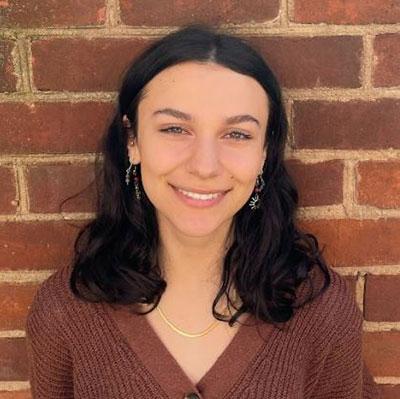
Please describe the work you do in the community to advance diversity, equity, and inclusion.
As a research assistant in Dr. Bethany Teachman’s Program for Anxiety, Cognition, and Treatment (PACT) Lab, I’ve had the opportunity to contribute to research that promotes diversity, equity, and inclusion. In collaboration with other lab members, I’m currently working to adapt an app-based cognitive bias modification program for Spanish speakers. I am passionate about increasing access to mental health resources to marginalized and historically underserved communities. Outside of my research, I am the Service Chair for UVA Outdoors Club, which allows me to connect with students and community members from diverse backgrounds and promote access to outdoor spaces for all.
How do you think about and promote diversity, equity, and inclusion in your research, leadership, engagement in student organizations, and/or community-building efforts?
I am promoting diversity, equity, and inclusion by working to fill gaps in mental health, such as increasing access to resources and information surrounding anxiety. Through this work, I’ve learned that it’s imperative to maintain connections within my own community and continuously stay informed on new perspectives and ideas regarding the work that I’m involved in. During my time at UVA, I’ve been able to collaborate with diverse groups of people and I’ve seen how valuable this has been not only for academic development, but for personal growth as well. I hope to continue this sort of collaboration throughout my lifetime both in and outside of academia.
What are some of the biggest challenges you face in advancing diversity, equity, and inclusion (DEI)? What motivates you to persist in the face of these challenges?
I think it’s really easy to become overwhelmed and feel like you have to address all aspects of an issue perfectly. Acknowledging that mistakes will be made and approaching these with an open mind has been difficult, but a very important part of the process. Accepting that there is always more to learn and not everything can be done at once is a huge personal motivator. It’s very exciting to think about improving programs in the future using feedback we’re getting on current work.
What advice would you give to others who are considering getting involved with efforts to promote diversity, equity, and inclusion?
As you start looking into a specific topic, you’ll quickly recognize how many gaps there are. Not knowing where to start is a part of the process, and asking others for help can make it much more approachable. Remember that it’s not your job to do everything all at once, and taking things one step at a time can help make things seem more manageable. Just taking the first step is impactful. Don’t let initial intimidation turn you away and remember that this isn’t an individual feat for you to tackle!
Who Was/has Been An Important Mentor or Role Model In Your Work (Either As It Relates To Diversity, Equity, And Inclusion, Or More Generally)?
Dr. Bethany Teachman has been extremely influential in combining diversity, equity, and inclusion with research. She continues to foster a lab environment that’s extremely welcoming and truly values each and every contribution made, no matter who it comes from. There are frequent conversations about increasing accessibility and inclusion both in the work that we do and within the lab itself. Dr. Teachman has greatly inspired me to pursue a career in research, as I’ve seen how powerful an inclusive lab culture can be.
Kayden Stockwell
Developmental Psychology PhD Student

Please describe the work you do in the community to advance diversity, equity, and inclusion.
Most of my community-oriented work relates to educating folks about neurodiversity and disability. I have provided training on autism and neurodiversity in the workplace to local organizations and several departments at UVA. Some of my research has overlapped with these goals: I worked with other researchers in my lab to interview autistic students at UVA and learn about how the university could better support them. We are in the process of disseminating these recommendations and hope they will be put into action.
I have also been involved in efforts to improve support for disabled graduate students. While about 20% of undergraduates report having a disability, this number shrinks to about 11% of graduate students, and only 2-3% of faculty members. This indicates not a “leaky pipeline”, but rather that active barriers created by systemic ableism only increase as one pursues further education and employment in academia. To try and address issues experienced by disabled students, I’ve served as a graduate student member of UVA’s Disability Advocacy Committee since 2021. I also try to “pay it forward” outside of the UVA community and have mentored students and post-baccs with disabilities applying to PhD programs.
Since 2021, I’ve worked with Dr. Monique Botha and Dr. Eilidh Cage to co-run an international online organization focused on bringing autism researchers and autistic people together to address prejudice toward autistic people. We host bimonthly research presentations on topics such as intersectionality and autism stigma, children’s development of dehumanizing attitudes, and cross-cultural examinations of prejudice against autistic people.
How do you think about and promote diversity, equity, and inclusion in your research, leadership, engagement in student organizations, and/or community-building efforts?
My research focuses on understanding the experiences of two groups of people: autistic college students and non-speaking autistic adults. My work with autistic college students has been informed by my own experience of being an autistic undergraduate, but my experience represents a very narrow slice of autistic college students. I have worked with my advisor, Dr. Vikram Jaswal, and the other graduate students in my lab to develop a more transparent and equitable research assistant application process as part of our goal of bringing more autistic undergraduates into the lab. As I continue to gain research and mentorship skills, part of my job is to use those skills to provide training and opportunities to the next generation of autistic autism researchers.
As for my research with non-speaking autistic adults, it is crucial to seek their perspectives and the perspectives of the people close to them. I can still draw from the many overlapping interests and challenges that autistic people tend to share, but I have never been non-speaking. Selecting research questions that are of interest to this community and developing accessible methods that allow us to investigate those questions requires building community relationships, interdisciplinary research collaborations, and the willingness to admit when I don’t know something.
What are some of the biggest challenges you face in advancing diversity, equity, and inclusion (DEI)? What motivates you to persist in the face of these challenges?
DEI efforts (and DEI-focused funding opportunities) often forget about disability. It’s not uncommon to be the only disabled person in a room, and it’s tiring to always be the person asking “What about disability/accessibility?” It’s tiring to be an autistic person researching autistic people, constantly seeing the way that people like you are talked about by researchers who assume that no autistic people are listening.
In my work with non-speaking autistic people, there is often pressure to portray this population with certain kinds of dehumanizing language in order to have access to certain funding sources. There often isn’t funding available to equitably pay community partners for their time when they contribute as researchers. Funding and publication timelines can also be challenging, as community-engaged work that is accessible can move more slowly than other kinds of work.
I have been able to develop meaningful relationships with other researchers and community members who care about disability and see the importance of including autistic people in the research process. Spending time in spaces where autistic people are valued is energizing, and brings me back ready to continue the work.
What advice would you give to others who are considering getting involved with efforts to promote diversity, equity, and inclusion?
Be open to learning, un-learning, and doing the work. There is a lot to be done, and it can be overwhelming. There is always more you could be doing, but you can’t say yes to all of it or you will burn out. That being said, I have learned so much from my DEI-related work and the people I have met through my involvement. My research would be incomplete without actively incorporating DEI principles, practices, and theories.
Paul Perrin
Professor of Data Science and Psychology

Please describe the work you do in the community to advance diversity, equity, and inclusion.
A primary goal of my professional work is to bring diversity and social justice issues into the community, as well as bring community perspectives to psychology and data science. A lot of the research I conduct uses a community-based participatory research (CBPR) approach in the context of disability. For example, I am collaborating with a diverse group of individuals with spinal cord injury to study how disability, race/ethnicity, and gender intersect to influence one's identity and life experiences. I am also collaborating with family caregivers of veterans and service members with traumatic brain injury to try to adapt a caregiver telehealth intervention to their unique needs. I give talks on racism to community organizations and help them both combat systemic racism from an organizational standpoint, as well as help empower individuals to confront racism in their personal and professional lives.
How do you think about and promote diversity, equity, and inclusion in your research, leadership, engagement in student organizations, and/or community-building efforts?
Diversity, equity, and inclusion represent principles that drive nearly all aspects of my professional life. I detest oppression in all of its forms, and I believe that I and other academics have a central role to play in its alleviation. The vast majority of research projects, leadership, and engagement opportunities I engage in involve diversity and working against oppression in some capacity.
What are some of the biggest challenges you face in advancing diversity, equity, and inclusion (DEI)? What motivates you to persist in the face of these challenges?
I identify as a White, middle-classed, middle-aged, educated, heterosexual, cisgender, currently non-disabled man. As a result, I currently occupy privileged identity locations across all aspects of my identity. While I try extremely hard to be a reliable ally/accomplice, my DEI efforts are inherently limited by my own identities. For example, sometimes I take a more intense approach to fighting oppression because of the protections my privileged identities afford me. However, doing so can create backlash for the communities I am trying to work for and with. It is extremely important to me that I hear and incorporate the feedback and guidance of people from diverse identities who live daily with the effects of oppression so that I can be a stronger ally/accomplice.
What advice would you give to others who are considering getting involved with efforts to promote diversity, equity, and inclusion?
I think that the most important thing people can do is listen to and validate others' experiences. As people learn to talk about diversity, especially in areas where they hold privilege (e.g., White people learning to talk about their Whiteness or about racism, men learning to talk about their gender role socialization or about sexism, etc.), it is natural to feel out of one's element. (A fish doesn't know it's wet!) So generally starting out trying to be a sponge and soak up the wisdom of people who have been studying and living with the effects of oppression, or of allies/accomplices who have worked hard and continue to work hard on understanding their own privilege and allyhood, is a good way to begin understanding one's connection to DEI issues.
Who Was/has Been An Important Mentor or Role Model In Your Work (Either As It Relates To Diversity, Equity, And Inclusion, Or More Generally)?
I have had a number of DEI-related mentors over the years, but one who I have learned a lot from recently is Faye Belgrave, a psychology researcher who wrote the first African-American Psychology textbook. I had the great fortune to co-teach a psychology PhD course with her for two years called "Diversity Dialogues: Focus on Race/Ethnicity." Seeing her masterfully facilitate conversations about race/ethnicity, and receiving regular feedback from her on my own multicultural teaching techniques and approaches, challenged me to grow tremendously as an instructor and as a person.
Past Diversity Spotlights
Fall 2023: Leanne Maharaj
Undergraduate, Class of 2025

Please describe the work you do in the community to advance diversity, equity, and inclusion.
Within the Charlottesville community, I work towards educational equity. In the past few months, I have established a CIO at UVA, First of the Family. We work to connect undergraduate students with graduate students who can serve as long-term mentors with a bottom-up, intimate approach, sharing the "family secrets" of different fields, such as networking tips, efficient habits, and decision-making. In the coming months, First of the Family strives to expand its impact into the Charlottesville community, mentoring local students, especially ESL students who could benefit from time and patience within a long-term relationship. Further, First of the Family regularly hosts development workshops, allowing a space for mingling and sharing of information to boost one's professional capacity.
How do you think about and promote diversity, equity, and inclusion in your research, leadership, engagement in student organizations, and/or community-building efforts?
I promote equity through personally identifying and actively working to fill discrepancies in education, such as access to resources, generational knowledge, and guidance. In order to maximize my impact, I stay informed and involved in my community. Further, I continually develop my ideas of what equity means and what I believe are fundamental rights of all humans. Through keeping this at the back of my mind, I am quick to identify discrepancies in the educational environment. Through First of the Family, I have a wonderful team to help me manifest the changes that must be made.
What are some of the biggest challenges you face in advancing diversity, equity, and inclusion (DEI)? What motivates you to persist in the face of these challenges?
The foundation of stigma, stereotypes, and implicit bias has been persistent for decades. Therefore, it is definitely not something that can be overturned overnight. Each step definitely requires a great amount of time, communication, and patience. However, I am fueled by the reward. Each community has so much to offer, whether it be their values, special interests, or sense of camaraderie. I aim to create a space where people of all backgrounds can interact and equal weight be given to their contributions. I imagine a world of encouragement and problem-solving in the most kind, efficient, human ways. Such a world will stimulate the development of children of all backgrounds, for all children will see themselves represented in prestigious positions, and they will know the possibilities that await them. Any step to realize this goal of equity is entirely worth it.
What advice would you give to others who are considering getting involved with efforts to promote diversity, equity, and inclusion?
No impact is "too small." Everything step counts, so don't delay due to fear or doubt. With a couple emails, you can begin to manifest your goals, which will in turn open the door to so many more.
Fall 2023: Francesca Sciaccotta
Systems Neuroscience PhD Student
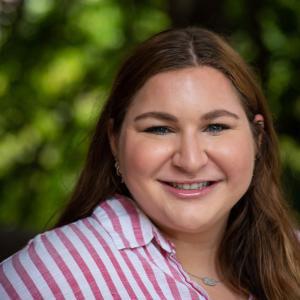
Please describe the work you do in the community to advance diversity, equity, and inclusion.
Since 2021 I have been a mentor and co-director for Brain Camp, a neuroscience-themed summer camp for middle school students who identify as members of underrepresented communities and/or are financially disadvantaged. In January 2022 we partnered with Starr Hill Pathways, a program in the Equity Center that works to improve student outcomes and mitigate opportunity gaps for local youth from historically marginalized communities, which allowed us to both extend Brain Camp with a longer course length and a larger cohort.
I am also a member and Head of Public Relations for the Psychology Outreach Committee. In April 2022, I co-coordinated "STEM Field Trip Day", which allowed 97 regional public middle school students to visit UVA for a day to tour some of the state-of-the-art research facilities in the Psychology, Biology, and Neuroscience departments, and engage in hands-on learning activities. With the relationship we built with Starr Hill Pathways through Brain Camp, we partnered with them to further establish three "STEM Field Trip" days (Genetics, Neuroanatomy, & Cognition) across the Spring 2023 and 2024 semesters.
How do you think about and promote diversity, equity, and inclusion in your research, leadership, engagement in student organizations, and/or community-building efforts?
As a neuroscience researcher that uses animal models it is important to recognize that, since I cannot promote DEI with my research directly, I need to find other avenues to do so. To this end, I focus on promoting DEI through subject matter in the classroom. Countless fields in higher education were founded on (and continue to rely on) White male supremacy and neuroscience is no exception, so it is critical to emphasize research by women and underrepresented minorities in science.
What are some of the biggest challenges you face in advancing diversity, equity, and inclusion (DEI)? What motivates you to persist in the face of these challenges?
I think one of the biggest challenges is understanding that you can't do it all. There are a plethora of responsibilities that come with being a graduate student, including classes, TAships, and spending the majority of your time in a research lab. So although I came in wanting to join multiple committees, I found that I could make the biggest impact by funneling my time into one committee/a few initiatives that I am most passionate about promoting. I often feel the pressure to 'limit' my involvement since it 'takes away' from my research time, but I am consistently motivated by the change we've seen in our Brain Camp students and all of the groundwork that has been laid by members of the Equity Center to start and maintain the Starr Hill Pathways program.
What advice would you give to others who are considering getting involved with efforts to promote diversity, equity, and inclusion?
I challenge those getting involved to center the perspectives of those you're trying to help and the systems you are trying to influence - too often people can be swept up in how proud they are of a particular initiative, or find that an event went well based on their own opinion. Focus on measuring the actual impact and figuring out what can be ameliorated... there's always more (and better) work to be done!
Fall 2023: Vikram Jaswal
Professor of Psychology
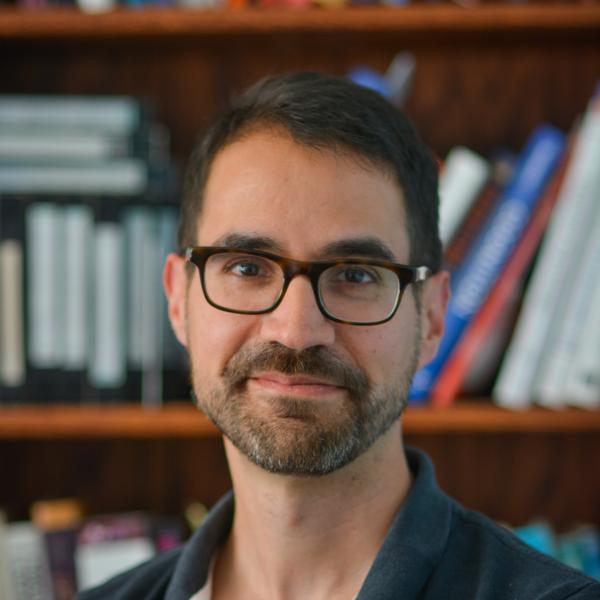
Please describe the work you do in the community to advance diversity, equity, and inclusion.
My lab's focus is on understanding how we can best support autistic people to flourish. Autistic people think, move, and communicate differently from non-autistic people. They have not traditionally been given the same kinds of opportunities as non-autistic people in school, social, or employment settings. Historically, research on autism has had as its goal the conversion of autistic people into non-autistic people--insisting that they make eye contact, for example, that they stop flapping their hands. This is a terrible goal if you're concerned about autistic people's mental and physical well-being.
The research we do in my lab takes instead a neurodiversity-affirming approach. We believe that our community is enriched by the inclusion of diverse minds and brains. Rather than insisting autistic people change to fit non-autistic norms, we study the kinds of tools they can benefit from and how institutions and attitudes can promote or inhibit flourishing. Consider that about one-third of autistic people can't communicate effectively using speech. Can we leverage technology to provide them an effective alternative (rather than insisting that they speak)? Or consider that college textbooks often describe autism in inaccurate, deficit-oriented ways. What are the effects on autistic college students and their non-autistic peers? Can we convey autism content in more accurate and respectful ways?
The work we do is inspired and informed by, and done in collaboration with, autistic folks and those who support them. They help us to prioritize the questions that are asked, the methods used, and how the data are interpreted. This requires active community engagement, building and maintaining authentic partnerships, lowering needless barriers to participation in research efforts, and presuming competence. Our goal is a more accurate, humane, and useful science of autism.
What are some of the biggest challenges you face in advancing diversity, equity, and inclusion (DEI)? What motivates you to persist in the face of these challenges?
Not surprisingly, one of the most significant challenges we have faced in my group is pushback by people and institutions who have not yet embraced the disability community's rallying cry, "Nothing about us without us." I have, for example, been in places and spaces where famous scientists wondered aloud of what value autistic lived experiences were to autism science. We persist because it is ethically and scientifically the right path.
What advice would you give to others who are considering getting involved with efforts to promote diversity, equity, and inclusion?
I always keep in mind four principles of inquiry outlined by the philosopher Eva Kittay, which I think are absolutely relevant to efforts to promote DEI.
1. Epistemic responsibility: Know what you are talking about.
2. Epistemic modesty: Know what you don't know.
3. Epistemic humility: Resist the arrogant imposition of your values on others.
4. Epistemic accountability: Attend to the consequences of your work.
Spring 2023: Tylar Schmitt
Undergraduate, Class of 2023
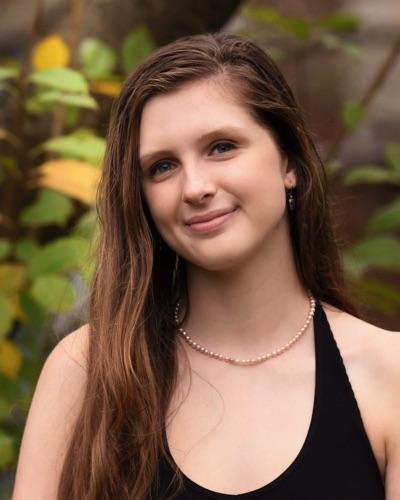
How do you promote diversity, equity, and inclusion in your research, leadership, engagement in student organizations, and/or community-building efforts?
As a research assistant in Dr. Bethany Teachman’s Program from Anxiety, Cognition, and Treatment (PACT) Lab, I’ve had many opportunities to engage in research that promotes diversity, equity, and inclusion. Through funding from the Harrison Undergraduate Research Award, I studied how racial and ethnic identity relate to individuals’ levels of COVID-19 anxiety. I am passionate about disseminating research beyond academia and currently mentor other research assistants in creating infographics that describe research findings in accessible language. Outside of my research, I am a Hoos Connected facilitator, which allows to me to engage in conversations about identity and build connections with students from diverse backgrounds.
Why are you committed to excellence in diversity, equity, and inclusion? What do you hope to accomplish through your efforts?
As an individual who has privilege, it’s imperative that I use it to create space for individuals who hold different identities than me. During my time at UVA, I have become a better student, researcher, and human being by making connections with diverse groups of people and actively listening to their perspectives. I want to continue collaborating with people of various identities and learn how I can improve mental health across marginalized communities.
Who was/has been an important mentor in your work (either as it relates to diversity, equity, and inclusion, or more generally?
Dr. Bethany Teachman has been an incredibly influential mentor to me, both for diversity, equity, and inclusion, and for my research career in general. Every semester, we have lab-wide conversations about how we can make our lab more accessible and inclusive for prospective members, current members, and research participants. Additionally, she creates a lab culture that values everyone’s contributions, no matter if they’re an undergraduate or graduate student, new to research or a veteran, or any other identity or status they hold. She makes academia a welcoming place and inspires me to be an inclusive leader who actively appreciates the work of their team.
What are some of the biggest challenges you face in advancing diversity, equity, and inclusion? What motivates you to persist in the face of these challenges?
Accepting that I’m going to make mistakes along the way. Advancing diversity, equity, and inclusion is a learning process, and sometimes the intent that you have behind your work does not equal the impact that it has. However, if you can acknowledge that you don’t know everything and educate yourself on issues that you’re passionate about, then you will be a better advocate for the community you’re serving.
What advice would you give to others who are considering getting involved with efforts to promote diversity, equity, and inclusion?
It’s easy to wipe your hands clean after completing a project and say that you’ve done the work to advance diversity, equity, and inclusion. However, the work is never done, and it is never perfect. You must be willing to recognize your limits, reach out to others for help, and embrace perspectives and experiences that are different than yours.
Spring 2023: Steph McKee
Social Psychology PhD Student

Describe your research in five words.
Race, social class, and politics
How do you think about issues of diversity and equity in your research? Please describe the work that you do in the community to advance equity.
My work lends itself to thinking about issues of diversity and equity as I am largely interested in who is and is not involved in the US political system. We know that white, higher SES individuals are able to engage in politics more than BIPOC and lower SES individuals. And, recent work suggests that our democracy overwhelming represents the will of the economically elite individuals and companies. So, it is important to think about structural issues which are barriers to equal participation in the political system so that our democracy represents the voices of all people.
What are some of the biggest challenges you face in advancing diversity, equity, and inclusion (DEI)? What motivates you to persist in the face of these challenges?
I struggle with two main issues regarding challenges to DEI work. The first is wanting to do everything – be on all the committees, read all the books, contribute in every way I can. This is not only unrealistic, but is actually counter to my overall goal related to DEI. I like to think about it like this. If my task is to work with a group to bring down a house, I need to focus on my part and trust that the other people are also doing their part to bring the house down – that’s how we can bring about actual change. And, I am not always the “right” person to demolish every part of the house (in keeping with the theme). So, I need to focus on the skills I can bring to the table, I need to rely on others, and I need to know how best to work with others to achieve our goals.
The second major challenge is interacting with people who don’t think DEI is a worthy issue, or even something that warrants discussion. Whether they are “colorblind,” enjoy their status, or just don’t care, it’s disheartening to realize how many people still don’t see that inequality is an important issue that affects us all.
It’s the people that do this work that inspire me to persist. The people who have done this work their entire lives. The individuals who are driven to address inequities from both past and present, caring when it seems no one else does. The people fighting for equity when others tell them to give up.
Why are you committed to excellence in diversity, equity, and inclusion? What do you hope to accomplish through your efforts?
Simply put, because it matters. We need to live up to the ideals of this country. I hope through this work and the important work others are doing, we will be able to attain this goal.
What advice would you give to others who are considering getting involved with efforts to promote diversity, equity, and inclusion?
The work can be taxing, but this is the most important work I do. Moreover, I do not do it alone. I have a community of people that work with me, support me, and help me grow as a person. In addition, when times get hard, it is important to remember to always take care of yourself. You cannot give to others what you do not have to give.
Spring 2023: Channing Matthews
Assistant Professor of Psychology
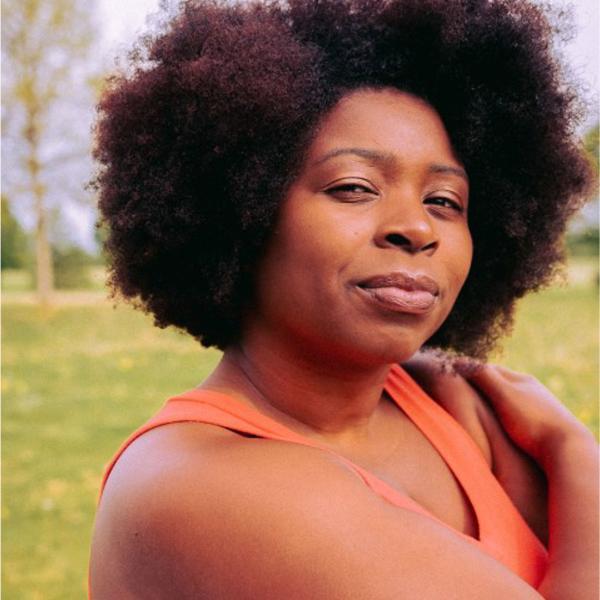
(The following is transcribed from an interview)
WHAT HAVE YOU DONE TO PROMOTE DIVERSITY, EQUITY, AND INCLUSION WITHIN THE PSYCHOLOGY DEPARTMENT?
[At North Carolina State University, where I was a postdoc] I created a “graduate school journey” seminar to make clear how people’s graduate school journey is not linear. I don't think people talk about that enough now: recognize that your journey is your own. Every year I would do something related to either graduate school development or professional development [because I think it’s important to] unveil the hidden curriculum. Your scholarly journey and learning should not be just about who you know—everybody should be getting the same [information] instead of it being based on who your advisor is. I really I hope that we can work something out with that here [at UVA].
The other thing is that I teach classes related to the research that I do. The class I'm teaching now is called Ethnic Racial Identity and Context. We focus on key questions such as: Why are race, racism, and racial discrimination important? And how does that relate to the way identity is shaped for both white people and people of color?
WHAT ARE SOME OF THE BIGGEST CHALLENGES YOU FACE IN ADVANCING DIVERSITY, EQUITY, AND INCLUSION? WHAT MOTIVATES YOU TO PERSIST IN THE FACE OF THESE CHALLENGES?
The biggest thing I’m thinking about right now is all of these Critical Race Theory bans going around, particularly in Virginia. It has implications for where and how I do my research. I’m in a very thoughtful phase about what my research [will] look like. As a first-year professor, I’m already overwhelmed, but I want to be very strategic about how I do my research, and how I impact the community. And I want to actually think critically about: how do these Critical Race Theory Bans impact the ways that we’re thinking about race and identity. Because just because you make something illegal to talk about, it doesn’t mean people aren’t talking about it. In fact, people are likely talking about it more, it’s just not in a space like a school. So I’m talking to people and figuring out…where do these things matter and how can I do this research in partnership with people who need it most? Which sometimes means not going to Charlottesville. Charlottesville is a very privileged town, and there are certainly communities that need support, but there are so many resources here. So how do partner with somebody who might need the resources that I bring to the table?
I also talk a lot to my elders in the field and in academic research, and say, “I don't know what to do with this, and you've had to deal with some insane challenges, too, in terms of being some of the founders of racial identity theory, and people not understanding why that's important.” So really talking to them about what advice they would give in the current sociopolitical context.
The last thing I do is that I acknowledge that I'm overwhelmed sometimes, and I talk about it with friends who are in the work with me to help me move past that overwhelming point and figure out, “What's the one next step that you can take?”
WHY ARE YOU COMMITTED TO EXCELLENCE TO DIVERSITY, EQUITY, AND INCLUSION? WHAT DO YOU HOPE TO ACCOMPLISH THROUGH YOUR EFFORTS?
When I went to college, the first professor I'd ever had who was a Black woman was in my junior year, and the only other Black woman [professor] I had was in this last semester of my senior year. It meant so much for me to see them in those spaces, and I had never even had a Black teacher until that point. So I think for me, I am committed to seeing more of “me” in the Academy—and not just in the Academy, but in workspaces in general.
I've always known what excellence is. I've always known the value of diversity. And I didn't understand that there were people in the world that really didn’t get that. I'm hoping my efforts help to bring more representation, not just in the Academy, but also in STEM fields. As somebody who really wanted to be a neuroscientist and kind of got pushed out of that pretty early in college, I want other people who look like me to realize like you can take this path and be really successful. And yes, it'll be challenging. But you shouldn't feel defeated because people don't want you there, and that doesn't mean that you don't belong. So, I'm hoping that my work helps to contribute to access and helping people not feel like they have to navigate spaces, but feel like they can thrive in them.
WHAT ADVICE WOULD YOU GIVE TO OTHERS WHO ARE CONSIDERING GETTING INVOLVED WITH EFFORTS TO PROMOTE DIVERSITY, EQUITY, AND INCLUSION?
Why are you doing the work? And what inequity are you trying to address? And what privileges do you bring to the forefront? I think that you need to ask yourself those 3 questions constantly, because you'll be sitting in the blind spots of your own perspective. So constantly asking yourself, what is my motivation for doing this? What inequity am I addressing? And what privileges do I bring to the space? Am I listening to the right people? Am I bringing my own stuff into this more than I should be? You also have to recognize that that stuff takes time and unfortunately, in academic spaces, everybody wants you to move faster. But that kind of work is not fast. You have to really think about it, and you have to be in constant conversation with the people that you're working with. [That] means that sometimes you're going to have some tense conversations where people give you feedback that you don't like. But I think [you need] the ability to sit with that feedback and [recognize] they're “calling me in” to help me to learn about how to do this work better and be a better teammate. I think if you don't build relationships where you trust that they're coming from that [perspective], that's where your feelings and emotions take over the actual work you're trying to do.
Fall 2022: Katherine Menendez
Undergraduate, Class of 2023
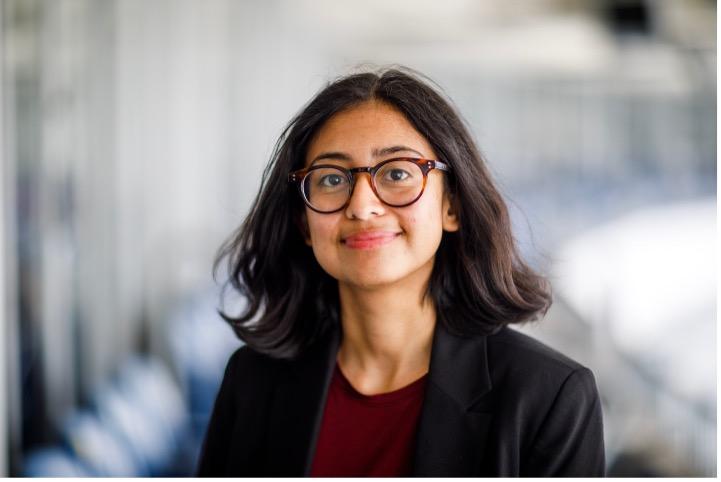
HOW DO YOU PROMOTE DIVERSITY, EQUITY, AND INCLUSION IN YOUR RESEARCH, LEADERSHIP, ENGAGEMENT IN STUDENT ORGANIZATIONS, AND/OR COMMUNITY-BUILDING EFFORTS?
Equity is a priority in the work that I do. I work as a research assistant in the Promoting Healthy Adolescent Development Lab, and I’m assisting Ariana Rivens on her dissertation that focuses on the mental health of black college students. Additionally, I work at a halfway house. I’ve helped residents apply to jobs, explore options for higher education, and held psychoeducational groups about skills for mental health recovery. As a lead facilitator for Hoos Connected, everything I do is about inclusion. My co facilitator(s) and I thrive to create an environment that fosters vulnerability and connection.
WHY ARE YOU COMMITTED TO EXCELLENCE IN DIVERSITY, EQUITY, AND INCLUSION? WHAT DO YOU HOPE TO ACCOMPLISH THROUGH YOUR EFFORTS?
For me, it’s more generally about being committed to the success of others. I think there’s a certain joy in seeing someone accomplish their goals and knowing that you helped them along the way. When you take into consideration the different obstacles they might have faced due to racism, classism, lack of resources, etc. it serves as motivation to help the next person. When I hear people talk about their goals, it’s typically followed by statements like, “I don’t think it’ll happen, but-” and I want to help people reduce the negative self-talk and believe in themselves.
WHO WAS/HAS BEEN AN IMPORTANT MENTOR IN YOUR WORK (EITHER AS IT RELATES TO DIVERSITY, EQUITY, AND INCLUSION, OR MORE GENERALLY?
I’ve been involved in Hoos Connected since my first semester at UVA, and it’s been instrumental to my growth as a student and as a person. I’ve been lucky enough to have the program director, Dr. Alison Nagel, act as my supervisor. She’s given me advice about how to approach conversations about mental health and lead with vulnerability. She, along with all of my past co-facilitators, have believed in my ability as a facilitator and as an aspiring psychologist.
WHAT ARE SOME OF THE BIGGEST CHALLENGES YOU FACE IN ADVANCING DIVERSITY, EQUITY, AND INCLUSION? WHAT MOTIVATES YOU TO PERSIST IN THE FACE OF THESE CHALLENGES?
Ironically enough, refusing to acknowledge my own limits. No one is capable of being an endless source of support, encouragement, vulnerability, or understanding without taking time to prioritize their own wellness. Part of success, especially if you belong to a marginalized group, is struggle. I’ve felt most comforted by honesty. When people are open about their failures, challenges, and setbacks, it becomes easier to accept mine.
WHAT ADVICE WOULD YOU GIVE TO OTHERS WHO ARE CONSIDERING GETTING INVOLVED WITH EFFORTS TO PROMOTE DIVERSITY, EQUITY, AND INCLUSION?
I believe it’s a matter of being intentional about the experiences you seek out and surrounding yourself with people that are committed to helping others. I’ve worked with children, adolescents, and adults in various settings (homes, classrooms, offices). Through these jobs I’ve met co-workers who have done this much longer than I have, and taken invaluable lessons from them. Observe, ask questions, and be willing to be vulnerable about your own experiences.
Fall 2022: Arianna Rivens, MA
Clinical Psychology PhD Student
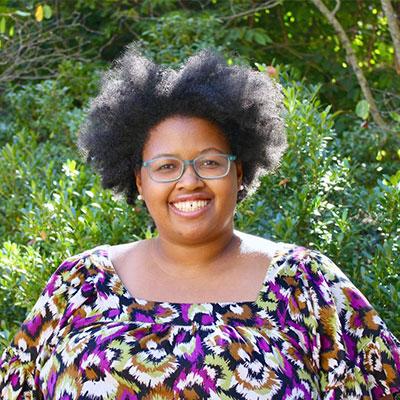
DESCRIBE YOUR RESEARCH IN FIVE WORDS.
“Promoting Black individuals’ health & well-being”
HOW DO YOU THINK ABOUT ISSUES OF DIVERSITY AND EQUITY IN YOUR RESEARCH? PLEASE DESCRIBE THE WORK THAT YOU DO IN THE COMMUNITY TO ADVANCE EQUITY
I think about diversity and equity frequently, as these issues drive my research. I continuously reflect on the legacies of inequality and current systems that negatively impact Black individuals’ well-being. I also consider the complex history of studying Black folks here in the Southeastern U.S., which is relevant to my research examining factors that influence Black young adults’ willingness to access mental health care. Through this work, I am taking steps to ensure that when Black youth and young adults do access mental health care, that this care is going to be supportive, culturally informed, and something that they would be willing to return to if they needed help in the future.
I also think about advancing equity in terms of describing Black communities. Although Black communities experience many disadvantages because of social inequalities, there are also amazing things within these communities that often get overlooked when researchers use a deficit approach. As a researcher, I hope to spotlight and bolster the positive aspects of Black communities that don’t necessarily need outside intervention. It is also important to me when talking about Black communities to emphasize the fact that this is a very broad and diverse group of individuals with unique experiences. I am intentionally very specific about who I am referring to when researching Black individuals and try to recruit samples that show that this community is not monolithic.
In terms of advancing equity in the community, I am interested in improving the institutions that Black and other marginalized individuals enter when they are trainees. For example, I am working at the national level to improve clinical psychology curriculums for clinical psychology trainees who deliver therapy to folks from diverse backgrounds. I also engage in community-building efforts with other queer and trans people of color here at the university.
WHAT ARE SOME OF THE BIGGEST CHALLENGES YOU FACE IN ADVANCING DIVERSITY, EQUITY, AND INCLUSION? WHAT MOTIVATES YOU TO PERSIST IN THE FACE OF THESE CHALLENGES?
In the polarizing landscape we currently live in, it is an emotionally draining time to be a Black person living in the U.S., and to be a Black person studying Black people. It is hard to see things that once felt like foundational agreements in our country – like the history that is taught in our school systems – being eroded. I also face challenges within my field from scholars who do not recognize the importance of studying communities of color on their own (without thinking about how they might compare to white or other dominant groups). When colleagues hold more limited or narrow viewpoints of what diversity, equity, and inclusion can really look like or do not understand the need for these efforts, it can be frustrating.
I am motivated to persist by colleagues in my community who are also determined to do this work and challenge the dominant norms that exist throughout our discipline and academia more broadly. I am also motivated by the individuals that I serve as a clinician and researcher. Hearing them articulate their experiences and express gratitude for the opportunity to share their experiences keeps me going and reminds me of the reason I am continuing to push forward.
WHAT ADVICE WOULD YOU GIVE TO OTHERS WHO ARE CONSIDERING GETTING INVOLVED WITH EFFORTS TO PROMOTE DIVERSITY, EQUITY, AND INCLUSION?
In my opinion, it is our responsibility as folks in the academy to get involved not only for the people that we are trying to serve but also for ourselves and our current and future colleagues. Although it is a noble endeavor, it is not always easy, and sometimes you may feel as though your efforts are too incremental to make a difference. Because of this, I think an essential aspect of this work is to build a community and have collaborators across different spaces. When I feel stuck, I think about the people I have connected with in this department and at this institution who are also committed to infusing these principles in their research, mentorship, and clinical work. Remembering there is a growing critical mass of folks who are putting forth these efforts helps me feel motivated to keep going.
Fall 2022: Sophie Trawalter
Associate Professor of Public Policy and Psychology
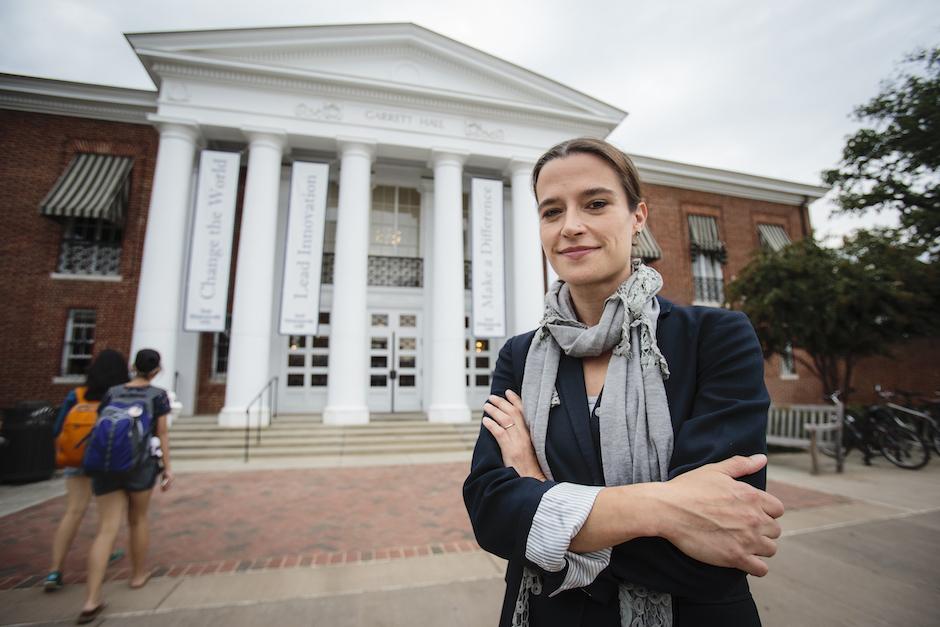
WHAT HAVE YOU DONE TO PROMOTE DIVERSITY, EQUITY, AND INCLUSION WITHIN THE PSYCHOLOGY DEPARTMENT?
As a researcher, with my lab, I study how social psychological processes contribute to disparities. We’ve studied how racial bias in perceptions of others’ pain can contribute to racial disparities in healthcare; how concerns about physical safety can contribute to gender and racial disparities in the academy; how perceptions and use of public space can contribute to racial and social class gaps in felt belonging at the University; how Confederate monuments in public spaces matter. This work has had impact. The work on racial bias in pain has been featured in lots of places, including The 1619 Project. In this way, I think it’s contributed to important conversations about the legacy of our racist history and whose pain is visible. The work on physical safety has led to more lighting on campus. Our work on monuments has informed local conversations about the removal of monuments.
As a teacher and mentor, I’m also committed to diversity, equity, and inclusion. I teach in the core curriculum at the Batten school, and I understand what a responsibility that is. My class is where we have some of the tough conversations around diversity and equity: Does racism play a role in presidential elections? How? And how do we know? How does our history of racial exploitation and violence show up in our attitudes and behaviors today? In healthcare? Policing? Education? How do contemporary racial attitudes shape our policy positions? In healthcare? Policing? Education? My hope is that this class has a deep and lasting impact for students. I hope it gives them tools to think critically about race, racism, and disparities.
And then, finally, a member of our community, most of my service and engagement are around diversity, equity, and inclusion. For example, as the Director of Diversity and Inclusion at the Batten school, I wrote a diversity plan, which helped us, I think, refocus on equity and our commitment to diversifying our pipeline. As another example, with colleagues at Batten, I teach workshops on “Leading for Racial Equity.” Last year, we gave these workshops to the World Economic Forum’s Young Global Leaders. My hope is that programs like these have a ripple effect, that they promote change starting with individuals and up to systems in which these individuals have power.
WHAT ARE SOME OF THE BIGGEST CHALLENGES YOU FACE IN ADVANCING DIVERSITY, EQUITY, AND INCLUSION? WHAT MOTIVATES YOU TO PERSIST IN THE FACE OF THESE CHALLENGES?
The current moment—and the backlash we are experiencing—can feel scary. But as one of my graduate mentors once said to me, you can’t let fear take you down! Apathy and inaction in the face of injustice is not OK. That’s fundamental.
WHY ARE YOU COMMITTED TO EXCELLENCE TO DIVERSITY, EQUITY, AND INCLUSION? WHAT DO YOU HOPE TO ACCOMPLISH THROUGH YOUR EFFORTS?
I believe wholeheartedly in inclusive excellence. I think diversity makes us better, stronger, smarter. That said, for me, diversity, equity, and inclusion are moral imperatives. Social identity should not dictate who gets heard, who gets seen, who gets valued, who gets to thrive.
WHAT ADVICE WOULD YOU GIVE TO OTHERS WHO ARE CONSIDERING GETTING INVOLVED WITH EFFORTS TO PROMOTE DIVERSITY, EQUITY, AND INCLUSION?
We can always find excuses not to do the work: there’s not enough time, it’s too daunting, we need more information, more data, more knowledge. And those things are almost invariably true. For many of us, there isn’t enough time, and it feels (and is) daunting, and we do need to educate ourselves to be better allies and better advocates. But, you just have to do it; make the time, find the courage, get informed, do more, and then do better.
Spring 2022: Justine Lee
Undergraduate, Class of 2022
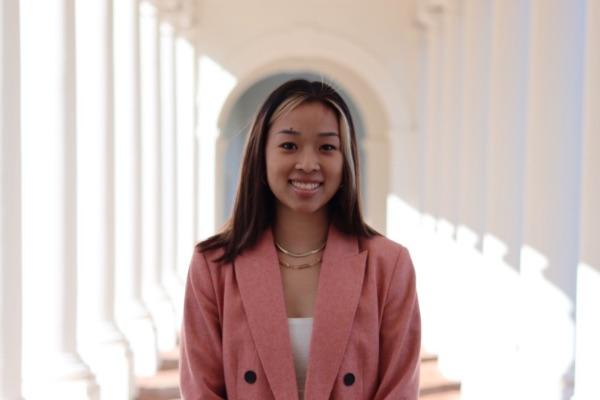
HOW DO YOU PROMOTE DIVERSITY, EQUITY, AND INCLUSION IN YOUR RESEARCH, LEADERSHIP, ENGAGEMENT IN STUDENT ORGANIZATIONS, AND/OR COMMUNITY-BUILDING EFFORTS?
First, in my research (i.e., in my DMP), I am investigating the effects of psychoeducation on college students’ mental health, with the hypothesis that psychoeducation can help to destigmatize mental illness among college students. Second, in regard to community-building efforts, I have a podcast called “BYOB: Bring Your Own Baggage,” in which I talk about mental health on college campuses. Through this work, I interview undergraduate students about challenging topics such as eating disorders, toxic masculinity, bipolar disorder, and sexual and gender identity. My hope is that people who listen will feel more connected and less isolated in their experiences.
WHY ARE YOU COMMITTED TO EXCELLENCE IN DIVERSITY, EQUITY, AND INCLUSION? WHAT DO YOU HOPE TO ACCOMPLISH THROUGH YOUR EFFORTS?
I know what it’s like to feel really isolated because I felt that way in my first year of college. It’s normal to feel that way, but it’s scarier to deal with it when you feel like you’re all alone. I don’t want anyone else to feel that way; I don’t want people to feel embarrassed to be struggling, and I want them to feel comfortable asking for help. Toward this end, my goal is to help make talking about therapy as easy as talking about getting a haircut.
WHO WAS/HAS BEEN AN IMPORTANT MENTOR IN YOUR WORK (EITHER AS IT RELATES TO DIVERSITY, EQUITY, AND INCLUSION, OR MORE GENERALLY)?
Dr. Jessica Stern and Dr. Alison Nagel were my first professors to talk about mental health in their classes, and that really impacted me. They were very caring, receptive to feedback, shared important resources, and clearly prioritized their students’ mental health over their grades. I also look up to Shannon Savell, my DMP mentor, who has introduced me to the Diversifying Scholarship conference and discussed critical topics with me, such as the importance of expanding mental health research among people of color.
WHAT ARE SOME OF THE BIGGEST CHALLENGES YOU FACE IN ADVANCING DIVERSITY, EQUITY, AND INCLUSION? WHAT MOTIVATES YOU TO PERSIST IN THE FACE OF THESE CHALLENGES?
For me, the biggest challenge has been the cultural stigma of being Asian American. There aren’t many Asian American therapists because in Asian cultures, we are told to keep our heads down in the face of racism and inequality; there is a fear of speaking out and getting professional help. However, representation among therapists is so important because various minority groups have unique experiences, and it’s important for people to be able to connect with their therapist in regard to their experiences. I’ve had to learn that it’s ok to admit you’re not ok, and through my experiences and education, my parents have been learning, too. It’s been motivating to see that even though they grew up in a different time, they can still learn and are still willing to learn. In regard to the podcast, last year after the Atlanta spa shooting, I had two episodes go up about what it’s like to be an AAPI woman in the current times. Through this experience, I got to talk to many Asian American women who have had similar experiences, and it was so nice to be able to connect with them and process these experiences together. It was empowering to hear their stories and to hear them speak out against racism and inequality. After the episodes went up, many Asian individuals reached out to us, and it was motivating for my guests and me to see that other people could relate and that our experiences have not been unique to us.
WHAT ADVICE WOULD YOU GIVE TO OTHERS WHO ARE CONSIDERING GETTING INVOLVED WITH EFFORTS TO PROMOTE DIVERSITY, EQUITY, AND INCLUSION?
Even though it can be scary to talk about diversity, equity, and inclusion, especially when you’re a minority, you’re not alone in your experience. Even if you can help just one person by sharing your story or speaking out, it’s worth the risk. Over time, it gets easier, and you’ll meet so many like-minded people who share your goals and who you can create community with.
Spring 2022: Alexis Stanton
Community Psychology PhD Student
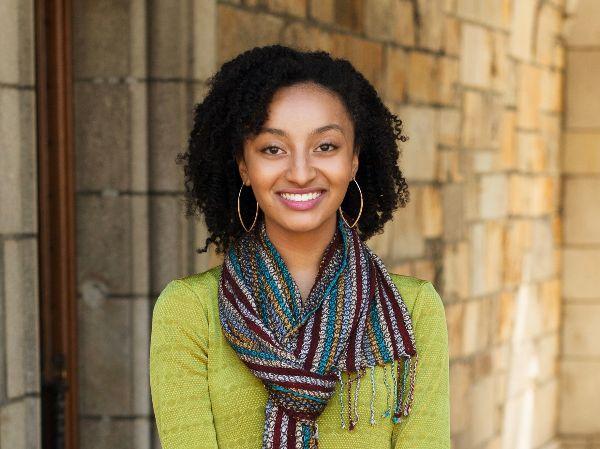
DESCRIBE YOUR RESEARCH IN FIVE WORDS.
Black women’s media use + health
HOW DO YOU THINK ABOUT ISSUES OF DIVERSITY AND EQUITY IN YOUR RESEARCH? PLEASE DESCRIBE THE WORK THAT YOU DO IN THE COMMUNITY TO ADVANCE EQUITY.
My research uses an intersectional lens to understand how U.S. Black women’s simultaneous experiences of racism and sexism shapes their digital media engagement. Through my research, I aim to uncover which aspects of Black women’s digital media use may contribute to their individual and collective identity development, mental health, and positive community building, while also identifying the unique barriers, stressors, and marginalization that Black women face in digital spaces.
In addition to my research, I am passionate about promoting institutional equity. For the past three years, I have served as the Graduate Student Director of Diversity, Equity, and Inclusion (DEI) for the UVA psychology department. In this role, I have worked to promote a more equitable and inclusive department, with two incredible faculty directors of DEI, Dr. Bethany Teachman and Dr. Noelle Hurd. What I enjoy most about this role is having the opportunity to support and amplify marginalized and underrepresented voices. I also enjoy collaborating with people across levels within the department (i.e., with undergraduate and graduate students, postdocs, faculty, and staff) to promote change. Outside of the university context, I have had the pleasure to work as a research evaluation and data assessment consultant for the Radicle Root Collective, LLC, which partners with cross-sector organizations who are seeking to transform their workplace culture and promote racial equity.
WHAT ARE SOME OF THE BIGGEST CHALLENGES YOU FACE IN ADVANCING DIVERSITY, EQUITY, AND INCLUSION? WHAT MOTIVATES YOU TO PERSIST IN THE FACE OF THESE CHALLENGES?
In his scholarship, legal scholar and civil rights activist, Professor Derrick Bell, emphasized the importance of understanding how racism has been “internalized and institutionalized,” and therefore, a permanent fixture within our society (Bell, 1992; Hoag, 2020). Yet, he urges us to not despair, and instead, to channel this insight into continuous, meaningful action. In the spirit of Professor Bell’s work, the biggest challenges I face are: (1) reconciling how the scope of DEI/the issues at hand often feel much larger than me and my contributions; and (2) learning how to cultivate the necessary balance in DEI work between pessimism and hope, realism and idealism, and dismantling and building. However, I am motivated to persist because I feel accountability in making the world a more just and equitable place and I know that I am not in it alone. I am so grateful for all my mentors, peers, friends, and family who have a shared and sustained commitment to advancing diversity, equity, and inclusion.
WHAT ADVICE WOULD YOU GIVE TO OTHERS WHO ARE CONSIDERING GETTING INVOLVED WITH EFFORTS TO PROMOTE DIVERSITY, EQUITY, AND INCLUSION?
I would like to reiterate that engaging in DEI work is a shared and sustained commitment. It is a journey in which change may sometimes be slow and hard to see, but the work matters. For those who engage in DEI work and who hold marginalized identities, take it day by day, have self-compassion and grace, and take care of yourself
Spring 2022: Lanice Avery
Assistant Professor of Women, Gender, and Sexuality and Psychology

(Transcribed from an interview)
WHAT HAVE YOU DONE TO PROMOTE DIVERSITY, EQUITY, AND INCLUSION WITHIN THE PSYCHOLOGY DEPARTMENT?
My interdisciplinary research takes up questions of intersectional identity development, gendered racism, identity management and coping, and psychosexual wellbeing, specifically among young Black women and femmes. It's informed by theories and methods from Black feminist studies, from gender and sexuality studies, public health, and media studies. I focus on improving the information, research, measurement, diagnosis, and treatment disparities experienced by some of our most systemically vulnerable and stigmatized populations in the US.
My lab is primarily staffed with doctoral students and research assistants who identify as first generation and historically underrepresented people of color. Many of those students also identify as non-binary or gender expansive and queer. The students enter my lab wanting to explore how systemic oppression constrains healthy development for vulnerable populations. This requires that they develop a strong command of multiple empirical methods. We use quantitative, qualitative, content analysis, mixed methods, participatory action research--the students at every level have to gain a dexterity in order to be efficacious and contribute to the knowledge we’re producing. They also have to be really savvy with different strategies for recruiting what is considered a “hard-to-reach” population, which we call systemically obstructed populations.
I facilitate a lot of professional connections and collaborations with undergrad and grad students across the Department of Psychology. Most recently, we’ve been doing a lot of work bridging the Community and Quantitative Areas, as well as other UVa departments like with WGS, School of Education, Human Development, Media Studies, MESALC, Drama, Politics, Music, Sociology, African American Studies. I have collaborations with all of those folks and they are utilizing our students to speak on panels, to serve on executive committees, and to motivate them to be more mission driven and more impactful with diversity, equity, and inclusion—not only on the departmental level, but also in the questions they’re taking up. Further, I’ve connected my students with research and professional development opportunities within the tech industry and media research centers.
Finally, my departmental teaching, including my guest lectures, focuses on health, equity, and social justice. I teach a course called Psychology of Women and Gender, which is a broad survey of the literature and psychological science on women’s health, addressing things like gender stereotypes, gendered socialization, equitable romantic relationships, sexual development, pregnancy and motherhood as it relates to disparities and mental health, and gender inequalities in the workplace and gendered violence more broadly. Then I teach the Psychology of Racial Identity, which reviews foundational theories of racial identity, development, socialization, intersectionality, and group representation in the mainstream media. Those courses generally draw students from across the university. It’s been a really beautiful transformation to see so many students from WGS and Sociology declare double-majors in Psychology.
WHAT ARE SOME OF THE BIGGEST CHALLENGES YOU FACE IN ADVANCING DIVERSITY, EQUITY, AND INCLUSION? WHAT MOTIVATES YOU TO PERSIST IN THE FACE OF THESE CHALLENGES?
The biggest challenge at our institution, and socially, is that it's a structural issue. I feel like I’m really impactful in getting folks to understand that they are stakeholders in issues of equity on an individual level. But institutional discrimination is structural and sometimes we produce work that raises a public or personal consciousness that doesn’t actually change structural barriers.
When I came to the Community Area, it looked very different. We are adding a bunch of women and people of color to the faculty. But there’s still a way that the PhD program is meant for people who have an opportunity to make this much money in their adulthood, who can leave their families and their relationships and their responsibilities, and live in a place where they can’t get hormone therapy. We have all of these resources for making coursework more accessible but our physical infrastructure is not accessible. We live on hills and elevators are not always running. The challenge is always paying attention to the structural so all the work we’re doing on the interpersonal doesn’t fall flat.
WHY ARE YOU COMMITTED TO EXCELLENCE IN DIVERSITY, EQUITY, AND INCLUSION? WHAT DO YOU HOPE TO ACCOMPLISH THROUGH YOUR EFFORTS?
I think Psychology is a powerhouse institution in terms of what influence we have on political and social transformation. Of all the social sciences, there is something really powerful about the ways the APA has been interconnected with our government and our policies. If you can get the APA to make a position statement on something, often people listen and it has very far reach. In terms of being a scholar-activist who moved from doing more direct action work in my youth, I use the strategy of gaining partnerships and being evidence-based and documenting how systemic racism creates shorter life expectancies based on color, based on gender, and based on legal status. At this moment, when media creators are so thirsty for content, it’s a real opportunity for us to lead the dissemination of information. I feel like I’m in the midst of a moment where every question could have an endless ripple effect on the social transformation and the attitudes that we have about multiple marginalized folks.
WHAT ADVICE WOULD YOU GIVE TO OTHERS WHO ARE CONSIDERING GETTING INVOLVED WITH EFFORTS TO PROMOTE DIVERSITY, EQUITY, AND INCLUSION?
Come on in, the water’s fine! I say that facetiously. It’s difficult and sometimes it feels like your efforts are futile because the deck’s so stacked, but I think it’s a moral imperative. The way that inequity functions is it really eclipses folks’ life. It’s really difficult to say that there’s anything else to spend your time on when you recognize that there’s an inequality that’s being maintained and produced that reduces not only quality of life but literal life expectancy. Being able to devote your attention and being able to become part of the contingencies of colleagues who are doing that work, it feels like time well spent.
It’s never too late. One of the most powerful things that we can all do is be grateful that we don’t have to do it by ourselves. Nobody is supposed to do it by themselves—we work in a field that is excited about building collaborations and connections. We are scholars, which means that we’re supposed to be lifetime learners. Be curious, ask questions, build connections, and the more tools you have in the arsenal, the more powerful you can be. I never go into a neuro talk or an econ talk thinking, “there’s nothing I can learn here.” There’s something in every corner that can make you more efficacious in what you’re trying to do.
Fall 2021: Chenelle Miller
Undergraduate, Class of 2022
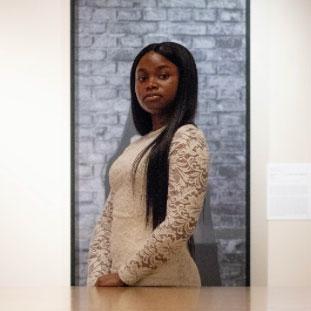
HOW DO YOU PROMOTE DIVERSITY, EQUITY, AND INCLUSION IN YOUR RESEARCH, LEADERSHIP, ENGAGEMENT IN STUDENT ORGANIZATIONS, AND/OR COMMUNITY-BUILDING EFFORTS?
In my role as a peer health educator, I worked to co-facilitate and revamp the Sexfest initiative. Sexfest has always been about positive sexual health, but it has historically focused on heterosexual individuals. I helped revamp it to be more inclusive and destigmatize sexual health among gender and sexual minorities. Ultimately, I hope all UVA students can use Sexfest as a resource.
WHY ARE YOU COMMITTED TO EXCELLENCE IN DIVERSITY, EQUITY, AND INCLUSION? WHAT DO YOU HOPE TO ACCOMPLISH THROUGH YOUR EFFORTS?
Current DEI initiatives don’t go far enough because they predominantly focus on integrating minorities into already intact systems. Instead of integrating minorities into the existing systems, we should reform these systems. We need systems and services geared toward minority groups that help minority students thrive. In the future, I hope to research adolescent psychopathology, ensuring that my research includes different minorities and uplifts their voices.
WHO WAS/HAS BEEN AN IMPORTANT MENTOR IN YOUR WORK (EITHER AS IT RELATES TO DIVERSITY, EQUITY, AND INCLUSION, OR MORE GENERALLY)?
Dr. Noelle Hurd, Ariana Rivens, and Janelle Billingsley have been important mentors. Working in the PHAD Lab has allowed me to think more about Black mental health and uplifting minority voices in one’s research. The work in the PHAD lab is an inspiration for the research I want to pursue in the future.
WHAT ARE SOME OF THE BIGGEST CHALLENGES YOU FACE IN ADVANCING DIVERSITY, EQUITY, AND INCLUSION? WHAT MOTIVATES YOU TO PERSIST IN THE FACE OF THESE CHALLENGES?
Most of the issues that surround these initiatives are systemic. Although one person can’t fix everything that is wrong in the world, we can uplift minority voices and help find ways for the majority to learn from them. We need this learning to occur because we need allies willing to confront the systems that belittle minority voices.
WHAT ADVICE WOULD YOU GIVE TO OTHERS WHO ARE CONSIDERING GETTING INVOLVED WITH EFFORTS TO PROMOTE DIVERSITY, EQUITY, AND INCLUSION?
It is an intensive effort, and it won’t all get done in one day. But people notice change. If there are inclusive initiatives, people will notice, which can bring them joy and cultivate a sense of belonging.
Fall 2021: Kyshia Henderson
Social Psychology PhD Student
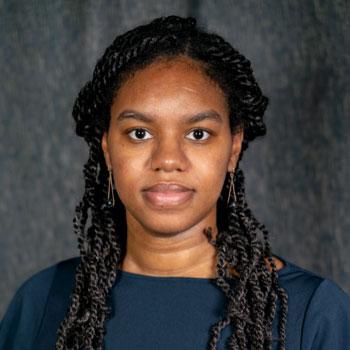
DESCRIBE YOUR RESEARCH IN FIVE WORDS.
How white Americans justify racism
HOW DO YOU THINK ABOUT ISSUES OF DIVERSITY AND EQUITY IN YOUR RESEARCH? PLEASE DESCRIBE THE WORK THAT YOU DO IN THE COMMUNITY TO ADVANCE EQUITY.
I study racism, an issue that should not be researched without centering equity. I approach my research through the lens of social justice, which impacts not only the kinds of research questions I have, but also the way the research is written and disseminated. It is essential to begin and end the research process uplifting the voices and experiences of racially minoritized people when providing a scientific take on an issue that impacts their daily lives.
WHAT ARE SOME OF THE BIGGEST CHALLENGES YOU FACE IN ADVANCING DIVERSITY, EQUITY, AND INCLUSION? WHAT MOTIVATES YOU TO PERSIST IN THE FACE OF THESE CHALLENGES?
One of the biggest challenges is dealing with people that join diversity and equity efforts but do not actually care about diversity and equity. In some cases, having more people can allow for more tasks to get done. However, what can (and does) also happen is that these people hinder progress by delaying decisions and opposing initiatives because they are not fully on board or are not knowledgeable about the issues. We need more people doing this work, especially those from privileged backgrounds. But we also need them to learn about the issues we are addressing and engage thoughtfully.
WHY ARE YOU COMMITTED TO EXCELLENCE IN DIVERSITY, EQUITY, AND INCLUSION? WHAT DO YOU HOPE TO ACCOMPLISH THROUGH YOUR EFFORTS?
As a Black woman and first generation college student, my time getting to, and being within academia, has been difficult. However, this journey is not equally difficult for everyone. I am committed because I personally understand how necessary these efforts are. My hope is that through diversity, equity and inclusion efforts at the university, we can change the systems that maintain oppression and create spaces that are truly welcoming and supportive of marginalized people. Thinking about psychology more broadly, these efforts begin to address the harm done to marginalized communities and help to gain their trust. My hope is that we become a field that is worthy of that trust.
WHAT ADVICE WOULD YOU GIVE TO OTHERS WHO ARE CONSIDERING GETTING INVOLVED WITH EFFORTS TO PROMOTE DIVERSITY, EQUITY, AND INCLUSION?
This advice is specifically for historically marginalized people involved in these efforts. Prioritize yourself. Doing work to advance equity while also being on the receiving end of why these efforts are needed weighs heavy. Being in these conversations can get difficult. Step back when you need to, be selfish with your energy when you need to. It is not on you to do it all.
Fall 2021: Noelle Hurd
Scully Family Discovery Associate Professor | DDI
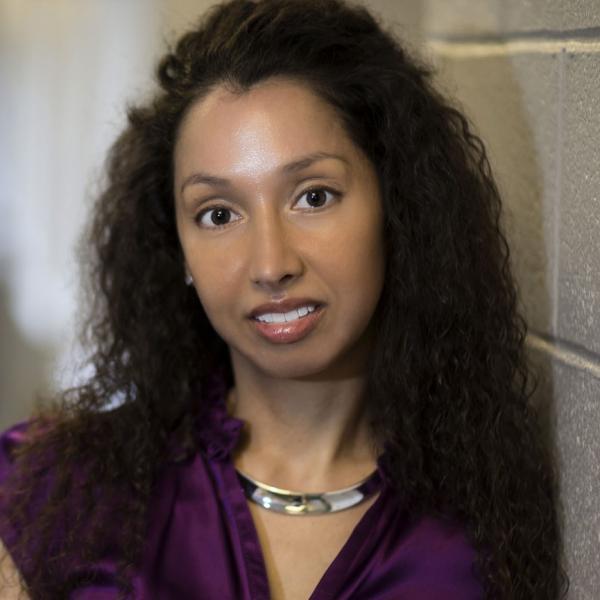
WHAT HAVE YOU DONE TO PROMOTE DIVERSITY, EQUITY, AND INCLUSION WITHIN THE PSYCHOLOGY DEPARTMENT?
I have been involved with a number of initiatives in the approximately ten years that I have been here (a chunk of this time I have served as the department’s Director of Diversity, Equity, and Inclusion; a role I share with my colleague, Bethany Teachman). These initiatives have included efforts specifically focused on increasing the representation of underrepresented groups in our department as well as efforts to make our department more inclusive. Some efforts I have led or contributed to regarding increasing departmental diversity and representation include facilitating intensive summer research experiences and facilitating an annual visit day for undergraduate students from underrepresented groups who are interested in pursuing graduate studies in psychology. I also have been serving as the faculty director for our department’s bridge to the doctorate program which is a program that provides additional coursework and research training to students from underrepresented backgrounds who have not had sufficient training and research experiences to prepare them for admission to doctoral programs. I have advocated for and led searches to hire faculty and post-doctoral fellows who conduct equity and justice focused research. Alongside Bethany Teachman and Alexis Stanton (our graduate student Director of Diversity, Equity, and Inclusion), I have worked to make our graduate admissions processes more equitable. We also have worked to build in more accountability for contributions to DEI in our graduate students’ and faculty members’ annual evaluations. This has included adding DEI questions to course evaluations. In addition, we have coordinated the work of a number of DEI departmental subcommittees comprised of faculty and graduate students. Through coordinated efforts, we collectively work to enhance equity and inclusion in our department. For example, some of our subcommittees are attending to the incorporation of more inclusive teaching practices in all courses offered through our department. Other subcommittees are working to increase the representation of students from underrepresented racial/ethnic groups in our major and to increase their participation in research (as research assistants in departmental labs). We also recently instituted annual awards in our department to recognize outstanding contributions to DEI made by graduate students and faculty. Additionally, we have compiled and maintain an expansive online repository of DEI resources for our faculty and graduate students. All of my departmental teaching (including guest lectures) centers issues of equity and justice. For example, I regularly teach courses on structural determinants of inequality and critical perspectives of psychological research. I have served as a Public Voices Thought Leadership Fellow where I wrote a number of op-ed pieces focused on issues of racial justice. I am the head of the Community Psychology program which is an area of psychology that explicitly centers social justice and equity. In my research, I employ a strengths-based approach to understand processes of risk and resilience among marginalized adolescents and I investigate opportunities to dismantle systems of oppression. I engage in this research alongside a team of diverse graduate and undergraduate students. I also direct an interdisciplinary doctoral fellowship training program that centers research on race and inequality in higher education.
WHY ARE YOU COMMITTED TO DIVERSITY, EQUITY, AND INCLUSION? WHAT DO YOU HOPE TO ACCOMPLISH THROUGH YOUR EFFORTS?
Advancing DEI is a moral imperative. I have always had a deep personal commitment to equity and justice. My knowledge of historical and current injustices compels me to act. I understand that all of us need to step up and do our part to continue to work toward a more just and equitable society. It is a shared responsibility; yet each of us may have unique opportunities to advance equity and justice that can be tied to our own opportunities and where we are situated in societal power structures. I know that real change requires collective and sustained effort. I hope to be a part of that change.
WHAT ADVICE WOULD YOU GIVE TO OTHERS WHO ARE CONSIDERING GETTING INVOLVED WITH EFFORTS TO PROMOTE DIVERSITY, EQUITY, AND INCLUSION?
It is okay to start with small steps and little changes if this feels overwhelming at first. For folks who are new to this space, try to do more listening and less talking to start. It is never too late to make changes and adjustments in the ways we have been doing things. If we really want a more just and equitable society, then we all have to do our part.
Spring 2021: Andrea Negrete, MA
Community Psychology PhD Student
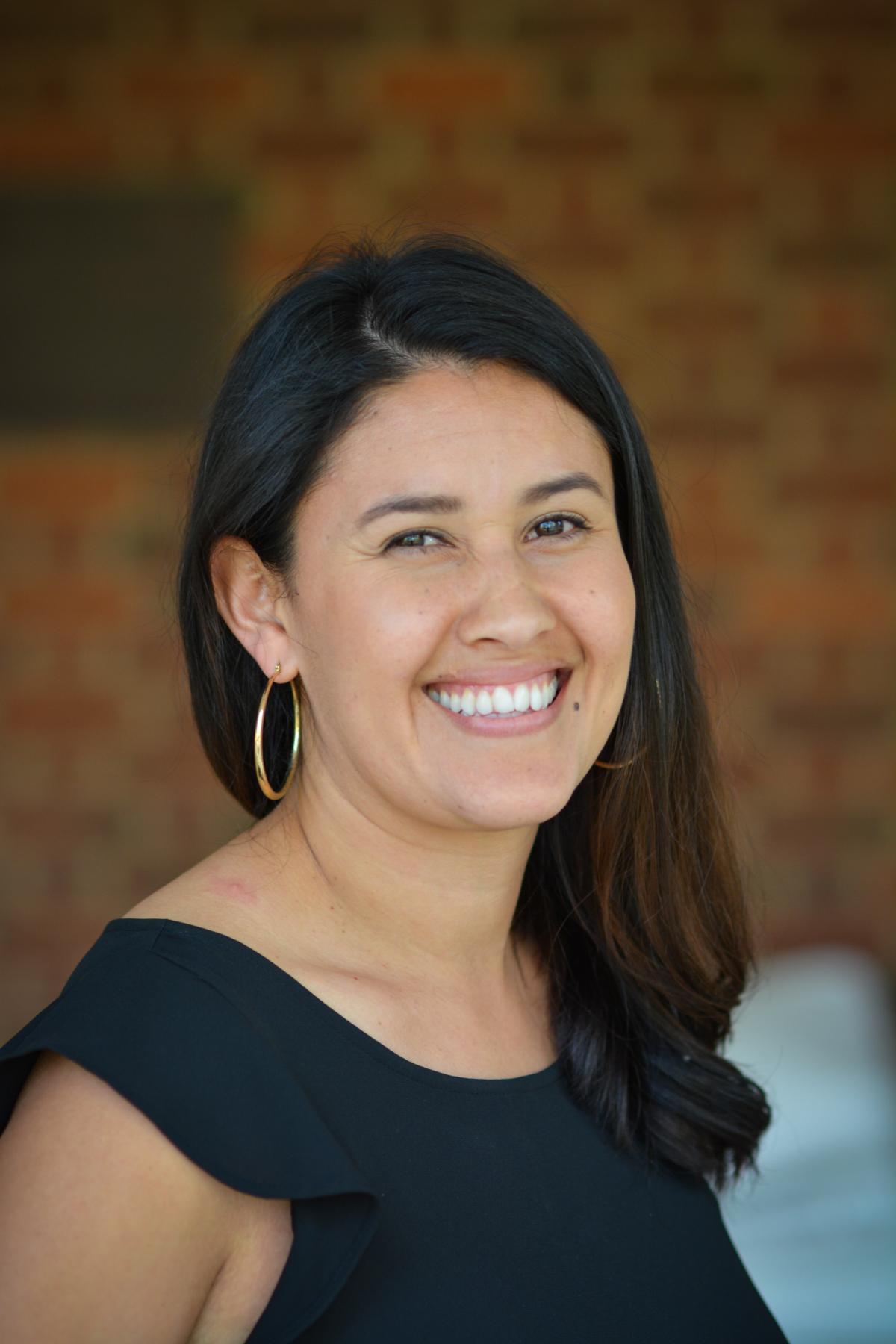
DESCRIBE YOUR RESEARCH IN FIVE WORDS.
“Immigration policy and young adulthood”
HOW DO YOU THINK ABOUT ISSUES OF DIVERSITY AND EQUITY IN YOUR RESEARCH? PLEASE DESCRIBE THE WORK THAT YOU DO IN THE COMMUNITY TO ADVANCE EQUITY.
As a community psychologist, I believe the most impactful research is rooted in the communities it aims to serve. That often requires stepping outside of the ivory tower. I grew up in a working-class immigrant community where my parents were farmworkers for about the first decade of living in the United States. My research and service are informed by my own lived experiences and the communities I grew up in. I also continue to be involved in community activism alongside organizers who are fighting for a more just world. What I learn being in collective struggle has made me a better researcher and teacher.
WHAT ARE SOME OF THE BIGGEST CHALLENGES YOU FACE IN ADVANCING DIVERSITY, EQUITY, AND INCLUSION? WHAT MOTIVATES YOU TO PERSIST IN THE FACE OF THESE CHALLENGES?
As someone who majored in psychology, I did not learn about racism and other systems of oppression in my undergraduate psychology courses. When I did read about race in psychology textbooks, it was primarily framing Black and Brown communities from a deficit framework. This is a problem. As a field that aims to understand human experience to advance well-being, our work must center the experiences of the most marginalized in our societies in ways that uplifts their strengths; and, it must focus on the systems that create oppressive conditions as the sites of intervention. I’ve been fortunate to have wonderful mentors such as Drs. Noelle Hurd and Joanna Williams who have modeled what this work can look like and am excited to continue this work in my own teaching and research.
WHAT ADVICE WOULD YOU GIVE TO OTHERS WHO ARE CONSIDERING GETTING INVOLVED WITH EFFORTS TO PROMOTE DIVERSITY, EQUITY, AND INCLUSION?
Connect with and support local anti-racist efforts; do the work alongside others and not alone. This requires being open to listening, learning, and being uncomfortable. Also, remember that no one has all of the answers. We will learn and grow together. No matter how big or small, everyone has a contribution to make. Together we will win.
Spring 2021: Stefan Lizarzaburu
Undergraduate, Class of 2021
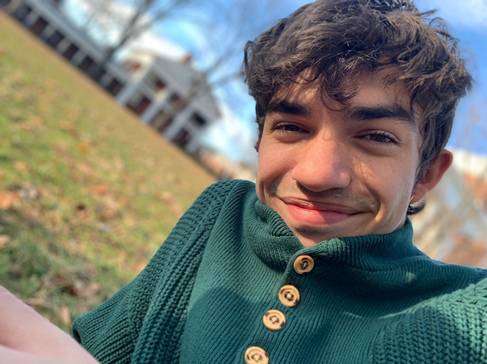
HOW DO YOU PROMOTE DIVERSITY, EQUITY, AND INCLUSION IN YOUR RESEARCH, LEADERSHIP, ENGAGEMENT IN STUDENT ORGANIZATIONS, AND COMMUNITY-BUILDING EFFORTS?
As the Executive Director of the Latinx Leadership Institute, I help lead a nine-week leadership development program each spring for first, second, and third year Latinx transfer students. The program culminates with participants researching and presenting on issues that affect Latinx students at UVA along with proposals for institutional changes that can be made to address them.
WHY ARE YOU COMMITTED TO EXCELLENCE IN DIVERSITY, EQUITY, AND INCLUSION? WHAT DO YOU HOPE TO ACCOMPLISH THROUGH YOUR EFFORTS?
I strive to make UVA a space that people from marginalized backgrounds can see as their own. This will obviously be difficult at any large PWI, but making small changes to foster community can go a long way toward promoting a sense of belonging and care among marginalized communities.
WHO WAS/HAS BEEN AN IMPORTANT MENTOR IN YOUR WORK (EITHER AS IT RELATES TO DIVERSITY, EQUITY, AND INCLUSION, OR MORE GENERALLY?
Two of my close friends: Kayla Dunn and Pilar Jiménez. Kayla has served as a mentor to me because she has cared for me in a way that made me believe in myself, my voice, and my impact. I also look up to Pilar because her work ethic and selflessness inspire me on a day-to-day basis.
WHAT ARE SOME OF THE BIGGEST CHALLENGES YOU FACE IN ADVANCING DIVERSITY, EQUITY, AND INCLUSION? WHAT MOTIVATES YOU TO PERSIST IN THE FACE OF THESE CHALLENGES?
I think the biggest challenge is working with institutions, which do not always recognize that they need more diversity and inclusion. But I am motivated to push forward to pave the way for future students to feel a bit more supported than my class was. For example, when I participated in the Latinx Leadership Institute in 2018, my team and I proposed expanding the existing Multicultural Student Center in Newcomb Hall and creating a new Latinx Student Center. This is something students before me had been advocating for for decades, and when I developed and presented my own proposal to administrators later that year, we were denied yet again. But after several attempts, we were finally able to convince them to approve the plans. This felt huge to me because if there had been a Latinx Student Center when I first started at UVA, that would have had such a positive impact on my experience. Now, countless other students will have that. It feels worth all of the hard work to see that we’ve paved the way for a brighter tomorrow for future students.
WHAT ADVICE WOULD YOU GIVE TO OTHERS WHO ARE CONSIDERING GETTING INVOLVED WITH EFFORTS TO PROMOTE DIVERSITY, EQUITY, AND INCLUSION?
The most important thing people can do, especially those in positions of privilege, is listen to others and learn about their experiences. Knowing when to cede the microphone is crucial, so I think the most important practice is active listening, learning, and most importantly, showing up for folks.
Fall 2020: Mihret Niguse
Undergraduate, Class of 2022

HOW DO YOU PROMOTE DIVERSITY, EQUITY, AND INCLUSION IN YOUR RESEARCH, LEADERSHIP, ENGAGEMENT IN STUDENT ORGANIZATIONS, AND COMMUNITY-BUILDING EFFORTS?
I am the president of a cultural organization called the Ethiopian Eritrean Student Association (EESA). EESA is the most visible way that I promote diversity and inclusion here at UVA. EESA is a place for people like me (of Ethiopian, Eritrean and East African backgrounds) to share their culture and experiences with the broader UVA community. Along with that, I am also a part of the Early Steps Psychology lab, which conducts longitudinal research on 731 ethnically diverse families and investigates the effects of family interventions on drug use, high risk behavior and other types of problem behaviors.
WHY ARE YOU COMMITTED TO EXCELLENCE IN DIVERSITY, EQUITY, AND INCLUSION? WHAT DO YOU HOPE TO ACCOMPLISH THROUGH YOUR EFFORTS?
As someone who has benefited from others’ commitment to diversity and equity, I believe it's important to continue this work so that others also get these opportunities. Through an organization called My Sister’s Keeper, I am able to give back and help those who are younger than me. I mentor an African American high school student who has hopes of being a pre-med student, just like me. I am able to help her navigate her personal life, classes, and college prep. Through this effort I hope to open up doors and improve her chances of getting into the college she wants to attend.
WHO WAS/HAS BEEN AN IMPORTANT MENTOR IN YOUR WORK (EITHER AS IT RELATES TO DIVERSITY, EQUITY, AND INCLUSION, OR MORE GENERALLY?
The deans at the Office of African American Affairs (OAAA), especially Dean Apprey, have been such great mentors, and have provided me with great resources over these past few years. Dean Apprey has encouraged me to apply for positions even when I didn’t see myself represented in them. Dean Gregory is also a big part of why I am here at UVA. Her commitment to helping students, especially those from first generation low income backgrounds, is one that has inspired and also motivated me to do the same.
WHAT ARE SOME OF THE BIGGEST CHALLENGES YOU FACE IN ADVANCING DIVERSITY, EQUITY, AND INCLUSION? WHAT MOTIVATES YOU TO PERSIST IN THE FACE OF THESE CHALLENGES?
The biggest challenge that I’ve faced is feeling out of place and outnumbered in the UVA community. This is especially challenging for my organization, EESA, which is pretty small and very recently established; so, when trying to promote events and do outreach, the biggest challenge we face is getting support from people outside of the African/African American Community. Regardless, I am motivated to continue expanding EESA and reaching communities outside of our own.
WHAT ADVICE WOULD YOU GIVE TO OTHERS WHO ARE CONSIDERING GETTING INVOLVED WITH EFFORTS TO PROMOTE DIVERSITY, EQUITY, AND INCLUSION?
Representation matters. Data collected by the Association of American Medical Colleges (AAMC) found that only 5% of all physicians identified as being Black or African American (AAMC, 2018a); and, out of that 5%, only 2.6% are women of color (AAMC, 2018b). This stark lack of Black female representation exists not only in the medical field, but also in the scientific community. As an Ethiopian American Black woman pursuing medicine, this reality awaits me. I have learned that success cannot be achieved alone, and I firmly believe that this is why I am where I am today. From the deans at the OAAA who proved critical to my pre-med journey, to my lab team at Early Steps, these individuals believed in me. My advice is to simply get involved where you are. There are lots of areas where representation can be improved, so I would say do what you can to increase the diversity within your field.
REFERENCES
Association of American Medical Colleges. (2018a). Retrieved from https://www.aamc.org/data-reports/workforce/interactive-data/figure-18-percentage-all-active-physicians-race/ethnicity-2018
Association of American Medical Colleges. (2018b). Retrieved from https://www.aamc.org/data-reports/workforce/interactive-data/figure-20-p...
Fall 2020: Shannon Savell, MA
Clinical Psychology PhD Student
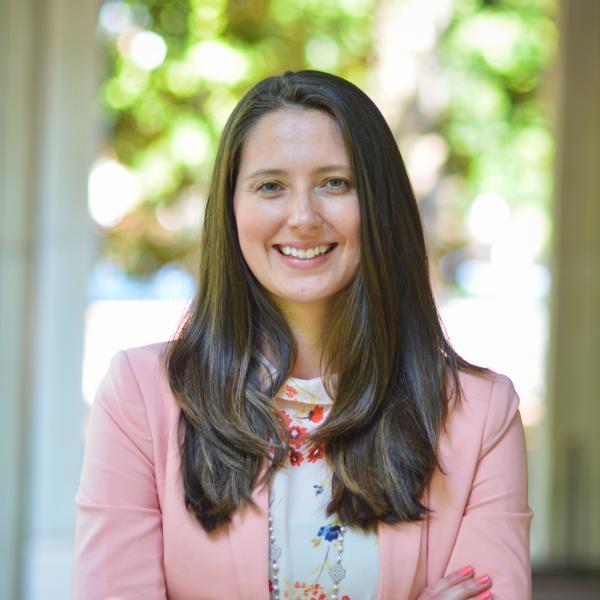
DESCRIBE YOUR RESEARCH IN FIVE WORDS:
“Mechanisms to improve family functioning”
HOW DO YOU THINK ABOUT ISSUES OF DIVERSITY AND EQUITY IN YOUR RESEARCH? PLEASE DESCRIBE THE WORK THAT YOU DO IN THE COMMUNITY TO ADVANCE EQUITY.
I strive to use a racial and social justice lens for every step of my research process. Three practical methods I use include: 1) using a strengths-based design, 2) being mindful of implications of research questions, and 3) utilizing inclusive participant recruitment strategies that not only include historically underrepresented participants in the study sample but also involve participants from historically underrepresented backgrounds in development of research design and dissemination of study findings.
To promote diversity, equity and inclusion in research, I co-lead a team of graduate student researchers in hosting the “Annual Diversifying Scholarship Research Conference” which is a student-led initiative to highlight research on diversity, inequality, bias and inclusivity and expand scholarship focused on socially marginalized communities. This year’s conference will be held virtually on April 9th 2021 from 9AM to 2PM. For more information and to register, please see our website. We hope to see you there!
WHAT ARE SOME OF THE BIGGEST CHALLENGES YOU FACE IN ADVANCING DIVERSITY, EQUITY, AND INCLUSION? WHAT MOTIVATES YOU TO PERSIST IN THE FACE OF THESE CHALLENGES?
At times, it is challenging to get all researchers to believe that the work to advance diversity, equity and inclusion does actually apply to their research program. I believe that all of the research in psychological science can and should be conducted with a racial and social justice lens at every step of the research process. The methods may look different across sub-disciplines but the value of justice and equity need not be separate from the research process. Additionally, many of the challenges in this work are related to funding and training. There is a need to increase training and education in racially and socially just research practices, a need to incentivize and require students and faculty to demonstrate cultural humility in research, and a need to properly incentivize, fund and promote research that addresses racial and social justice topics.
WHY ARE YOU COMMITTED TO EXCELLENCE IN DIVERSITY, EQUITY, AND INCLUSION? WHAT DO YOU HOPE TO ACCOMPLISH THROUGH YOUR EFFORTS?
Throughout the history of psychological science and in its current state, default research practices have perpetuated discrimination in a number of ways. This has occurred via the exclusion of participants of color and socially marginalized groups, exploitation of said groups, perpetuating stereotypes and discrimination, and by neglecting to properly incentivize and fund scholarship aimed to promote diversity, equity and inclusion (for review, see Roberts et al., 2020). I believe that striving to address these wrongs and improve the practice of psychological science will benefit the quality of the science. More importantly, it is an ethical responsibility of all researchers. Through efforts to address wrongs and promote excellence in diversity, equity, and inclusion in psychological science, I believe we can illuminate greater understanding of psychological phenomenon that can in turn produce benefits and mechanisms to ameliorate rather than further oppression.
WHAT ADVICE WOULD YOU GIVE TO OTHERS WHO ARE CONSIDERING GETTING INVOLVED WITH EFFORTS TO PROMOTE DIVERSITY, EQUITY, AND INCLUSION?
Be open to learning and approaching your research in a new way. Everyone can be involved in efforts to promote diversity, equity and inclusion in research. When thinking about your research program, engage in and grapple with issues of diversity, equity and inclusion in your research practices. Examine how you might change just one step (or more of course!) in your research process to address the ways in which your field in the past and present may have contributed to inequity and systems of oppression through research practices.
Fall 2020: Bethany A. Teachman
Professor of Psychology | Director of Clinical Training
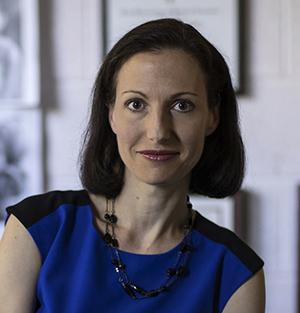
WHAT HAVE YOU DONE TO PROMOTE DIVERSITY, EQUITY, AND INCLUSION WITHIN THE PSYCHOLOGY DEPARTMENT?
I have been fortunate to work with a great team to introduce an annual Diversifying Psychology Visit Day and summer research program for talented students from underrepresented backgrounds to spend time in the department. I’ve also written and received multiple grants to promote diversity, equity, and inclusion (e.g., to fund psychology graduate student Directors of Diversity and Inclusion who have been outstanding collaborators on this work). We have tried to increase opportunities for learning about racial injustice and ways to support members of our community from traditionally marginalized groups (e.g., through bringing in speakers, discussions at area lunches, readings). We have also sought to make the department more inclusive by creating different avenues for students, staff, and faculty to raise concerns and ideas (e.g., through regular town halls and an anonymous feedback mechanism). I am learning a lot from the students and working with great collaborators, and look forward to growing the impact of this work.
WHAT ARE SOME OF THE BIGGEST CHALLENGES YOU FACE IN ADVANCING DIVERSITY, EQUITY, AND INCLUSION? WHAT MOTIVATES YOU TO PERSIST IN THE FACE OF THESE CHALLENGES?
There are times when it has been difficult to engage more colleagues to join the work so there are concerns that the work to promote diversity, equity, and inclusion falls on a very small number of students and faculty (often persons of color), which adds invisible labor and burden. As a person with a lot of privilege, I am thankful for the opportunity to work with outstanding students, staff and faculty who reflect inclusive excellence and add so much value to our department as phenomenal researchers, teachers, mentors, students, advocates, and people. I am continuing to learn and grow in my ability to support diversity, equity, and inclusion and am motivated to keep working toward these goals, both because I believe it is the right thing to do and because all members of our community benefit when this environment is a welcoming and supportive one.
WHY ARE YOU COMMITTED TO EXCELLENCE TO DIVERSITY, EQUITY, AND INCLUSION? WHAT DO YOU HOPE TO ACCOMPLISH THROUGH YOUR EFFORTS?
I hope that, over time, I and others will become better able to recognize and change the systems we are part of that maintain systemic oppression. I hope that through those efforts we will move toward being a more inclusive environment that celebrates diversity. While this work starts in our homes, labs, and department, my hope is that this work also helps to change the field of psychology so that psychological science can better contribute to addressing societal problems.
WHAT ADVICE WOULD YOU GIVE TO OTHERS WHO ARE CONSIDERING GETTING INVOLVED WITH EFFORTS TO PROMOTE DIVERSITY, EQUITY, AND INCLUSION?
Keep showing up. We all sometimes make mistakes and say the ‘wrong’ thing, but keep trying. Caring enough to keep trying, keep reading, keep listening, keep taking steps to be anti-racist, and keep being open to feedback can make a big difference.